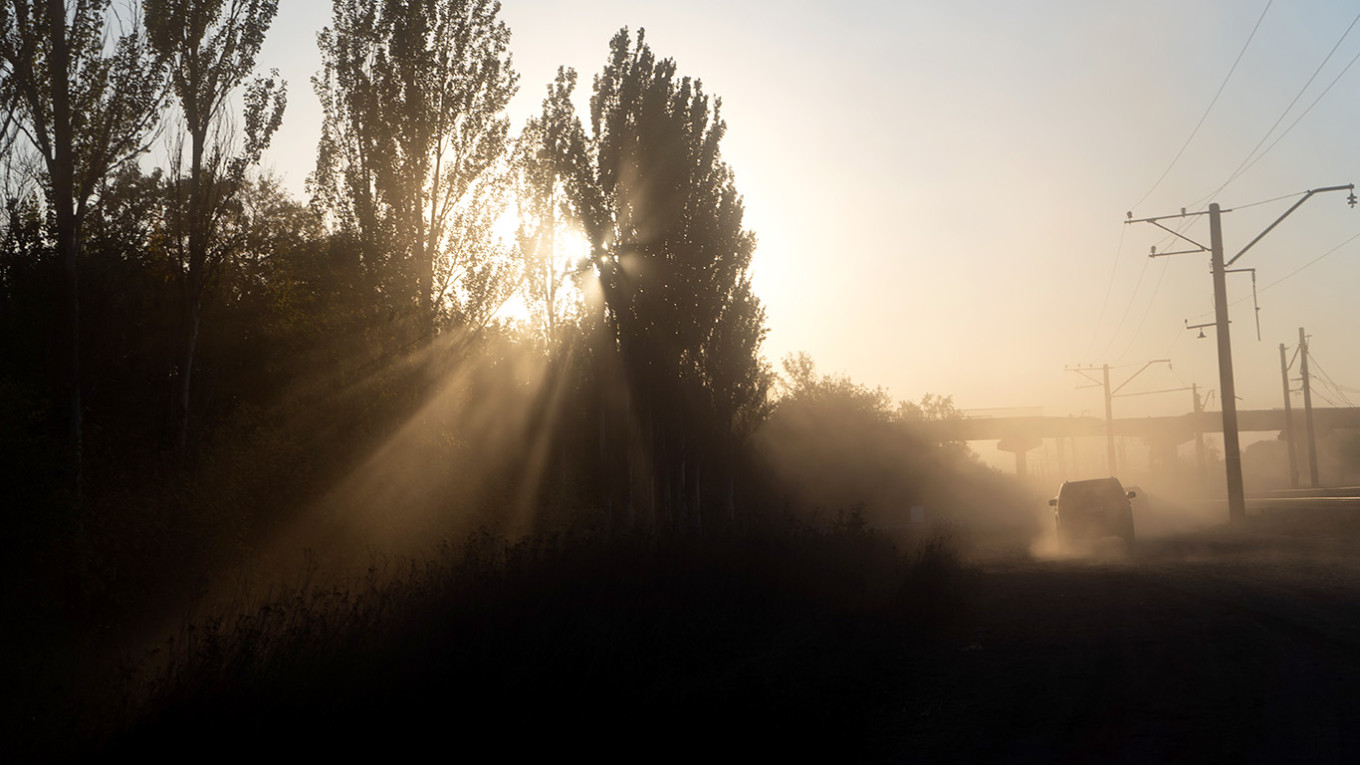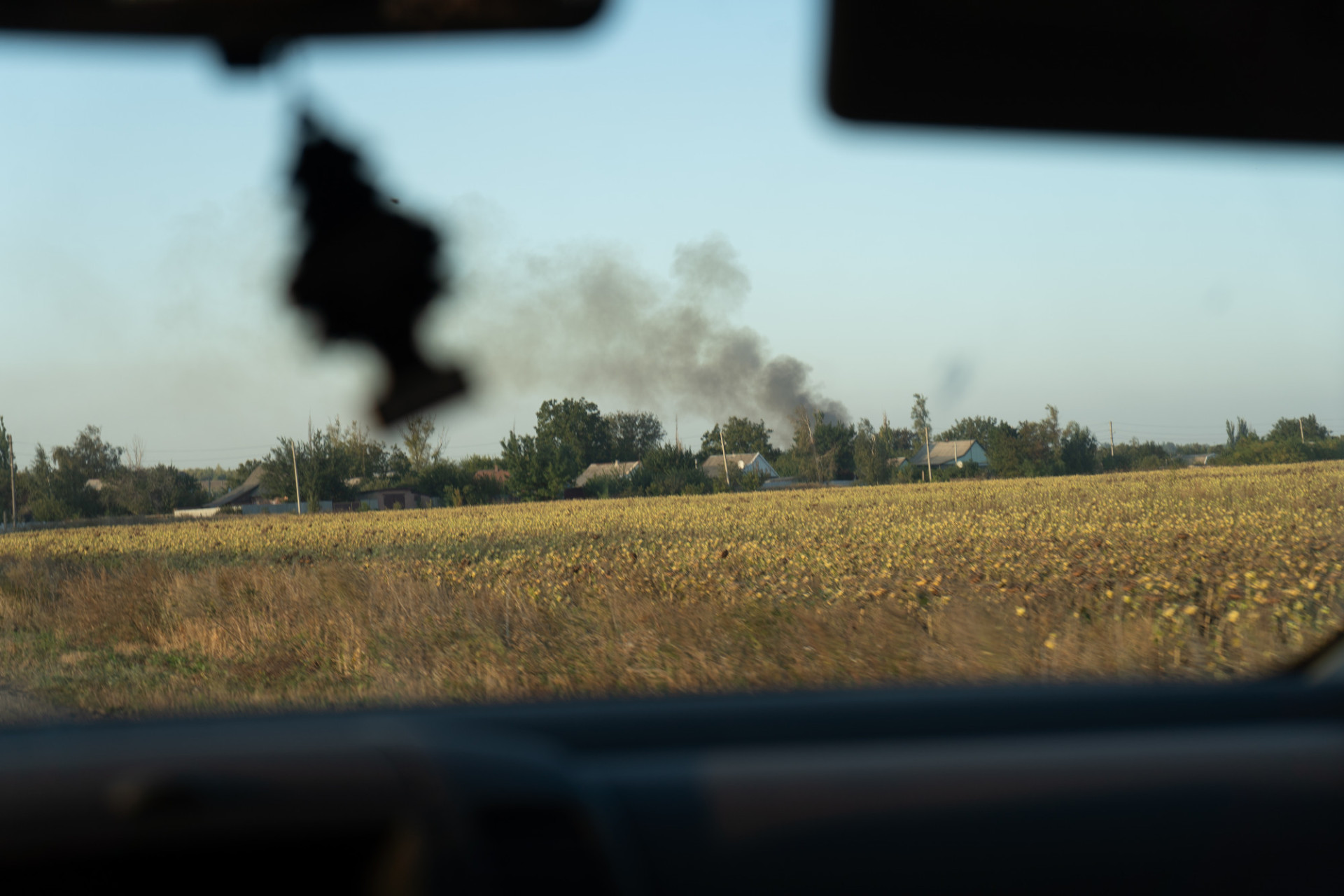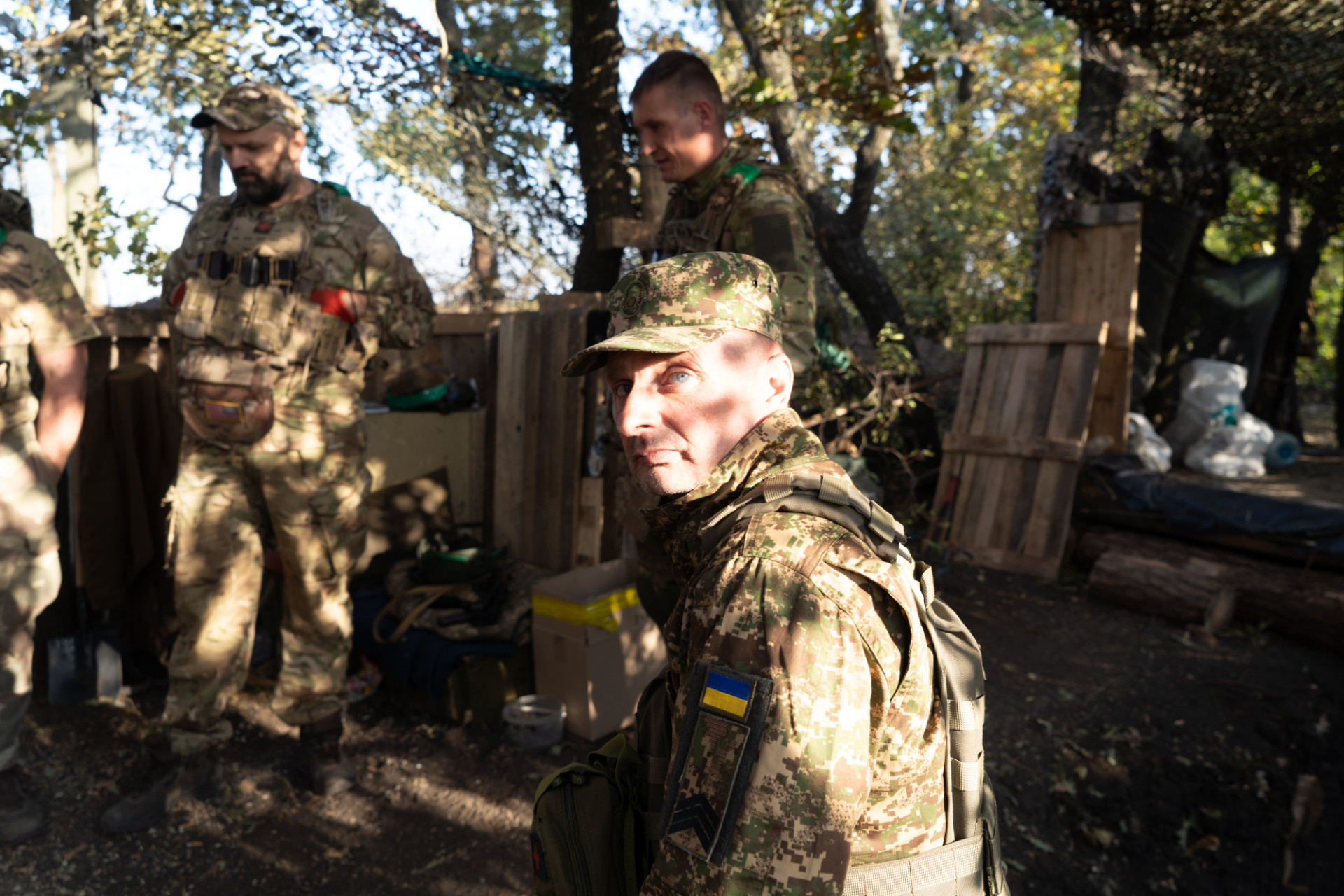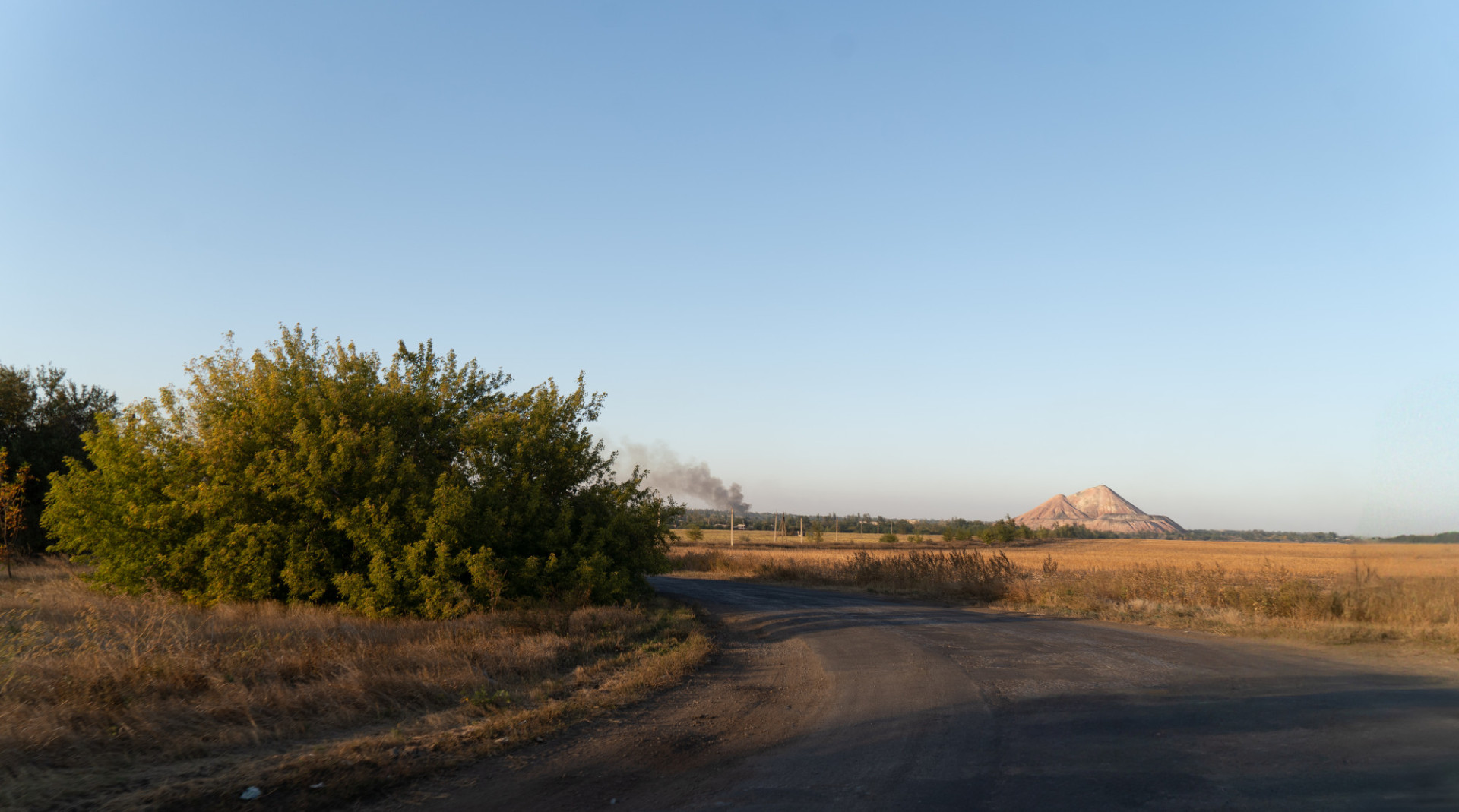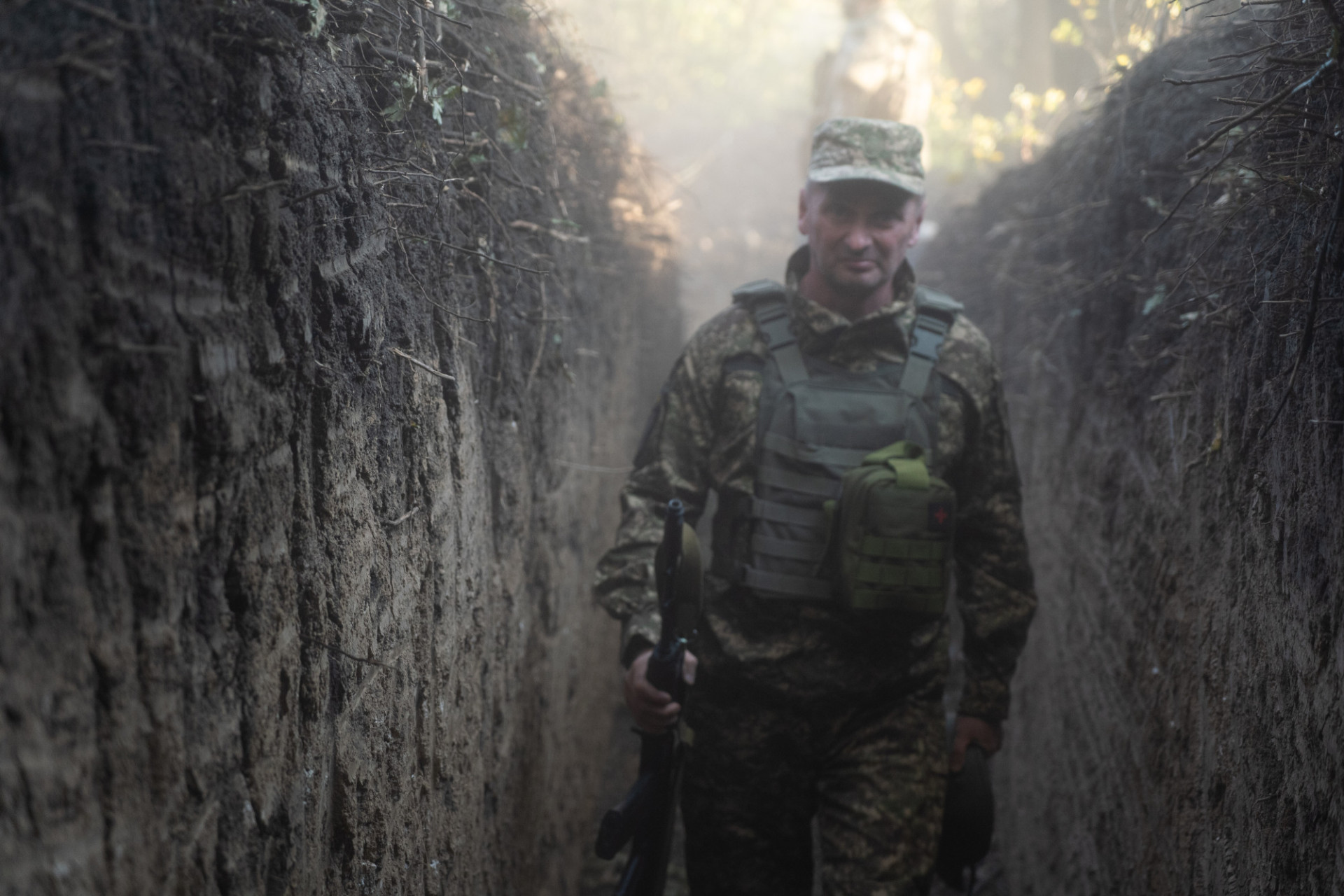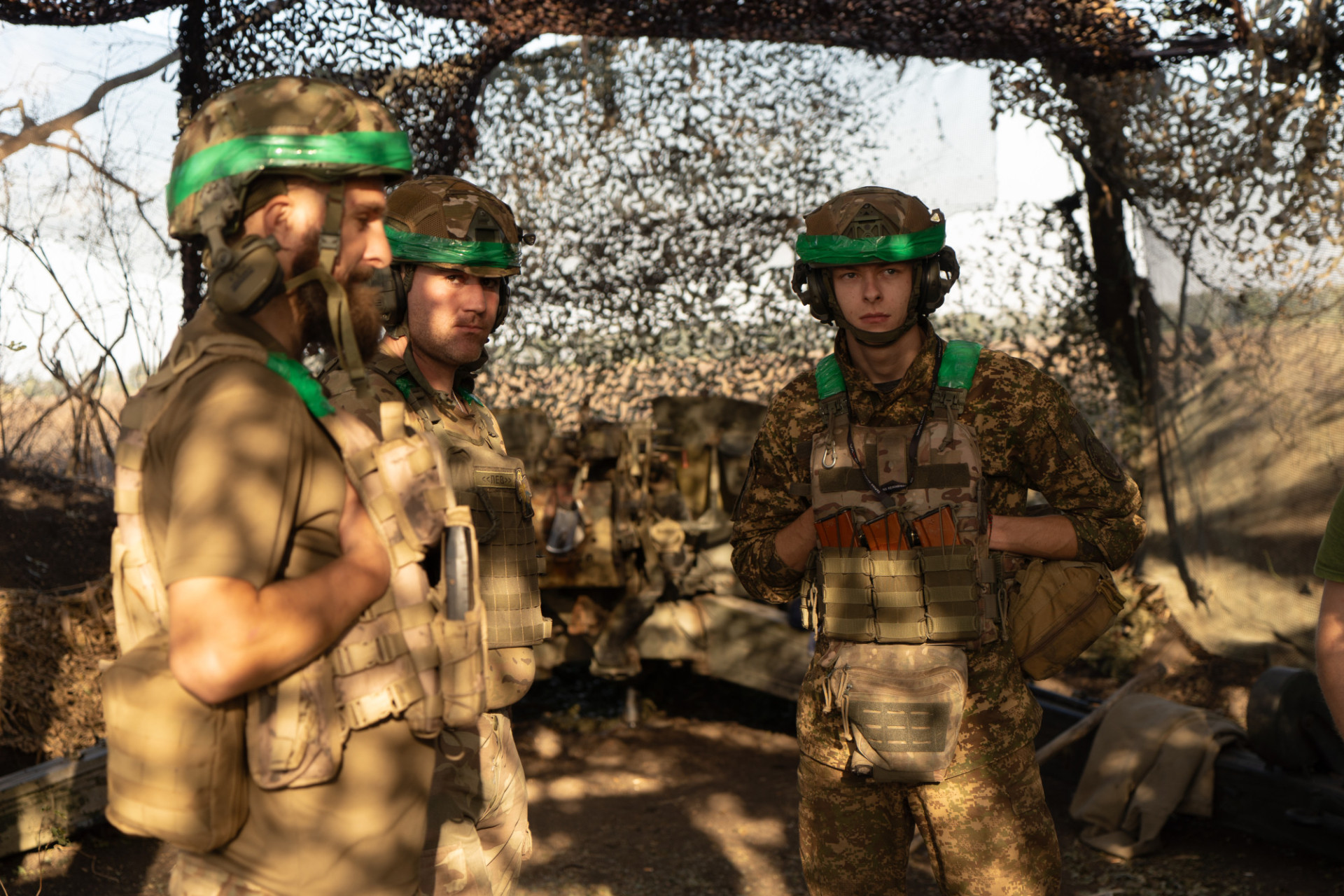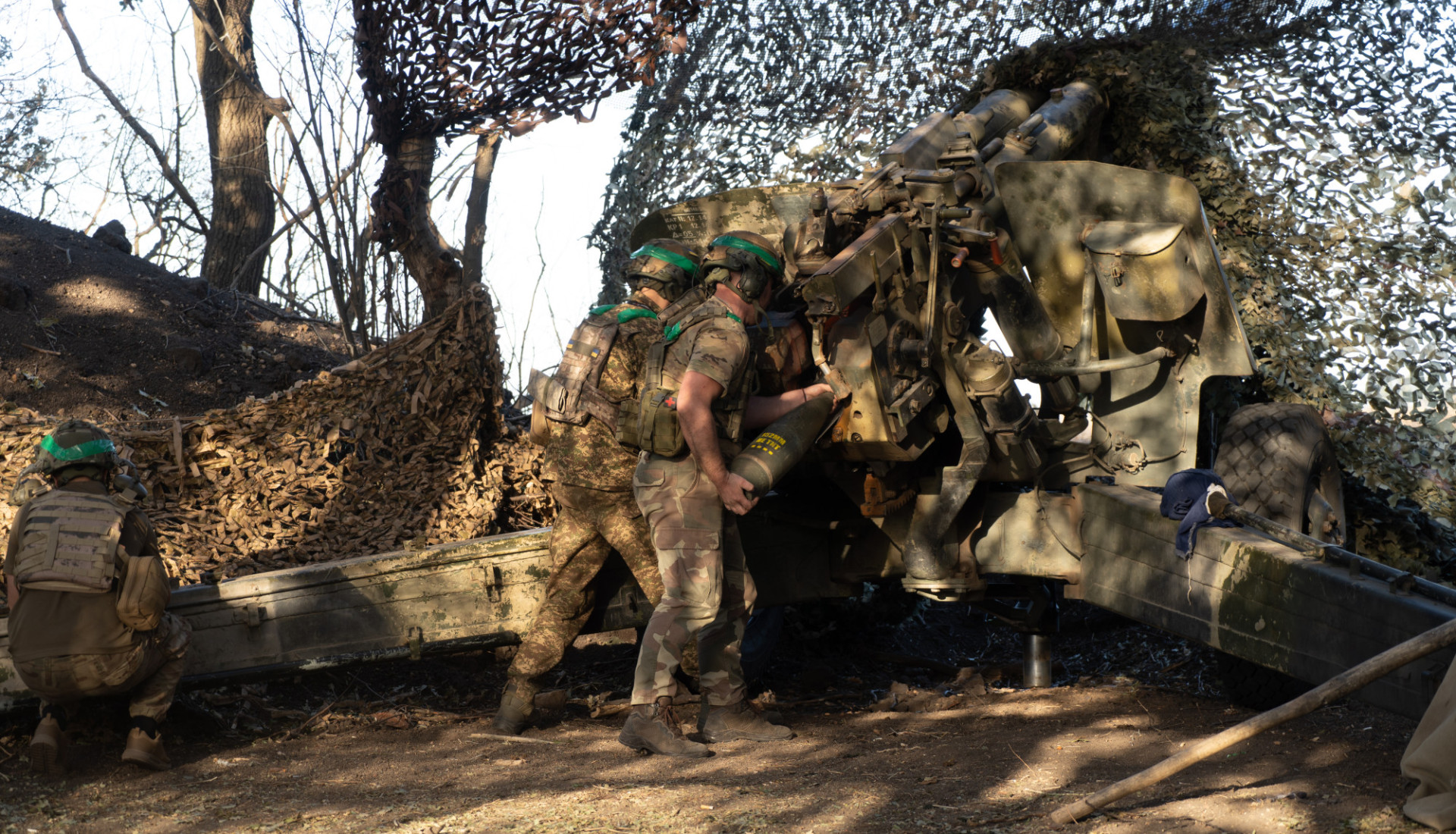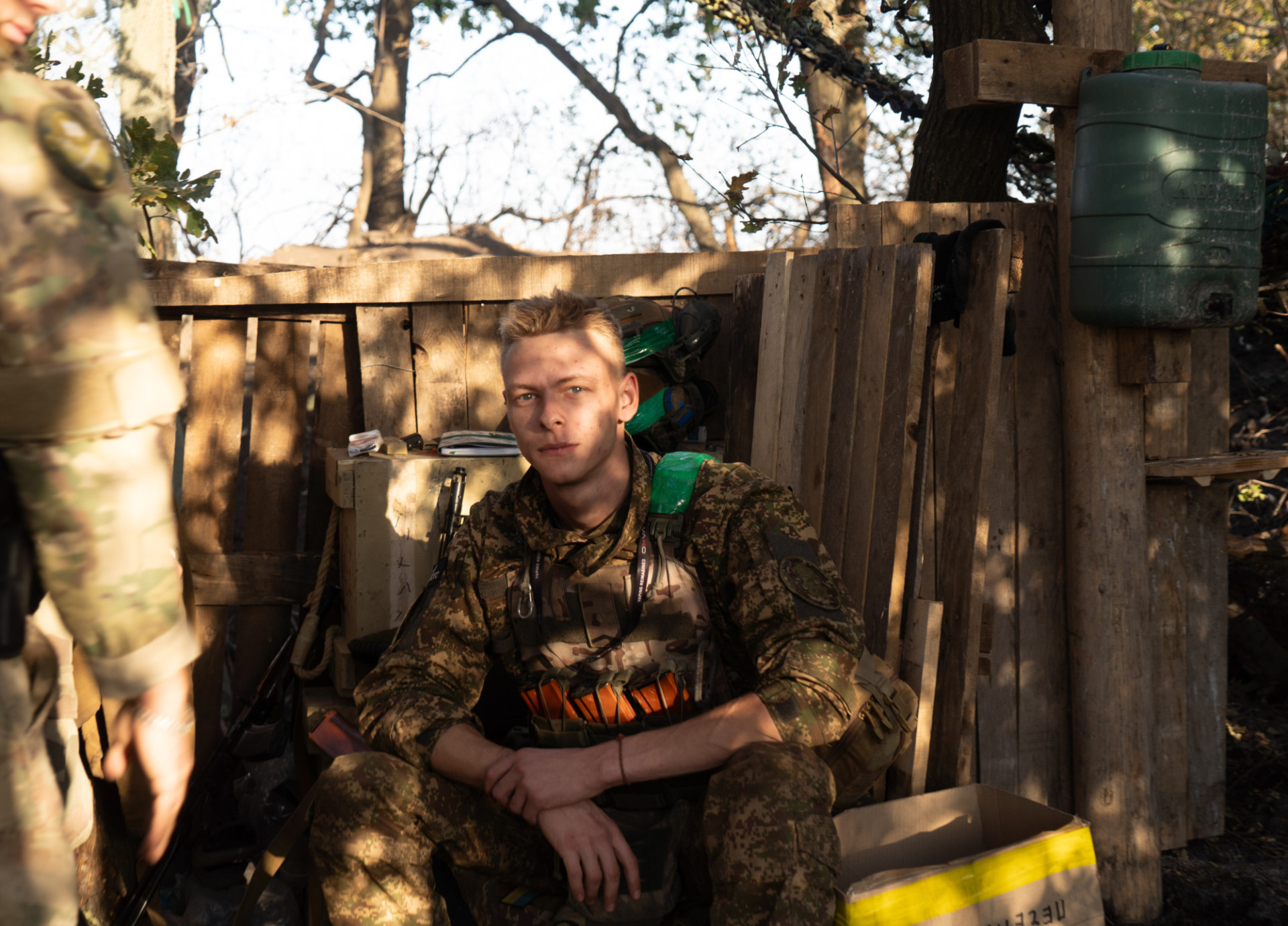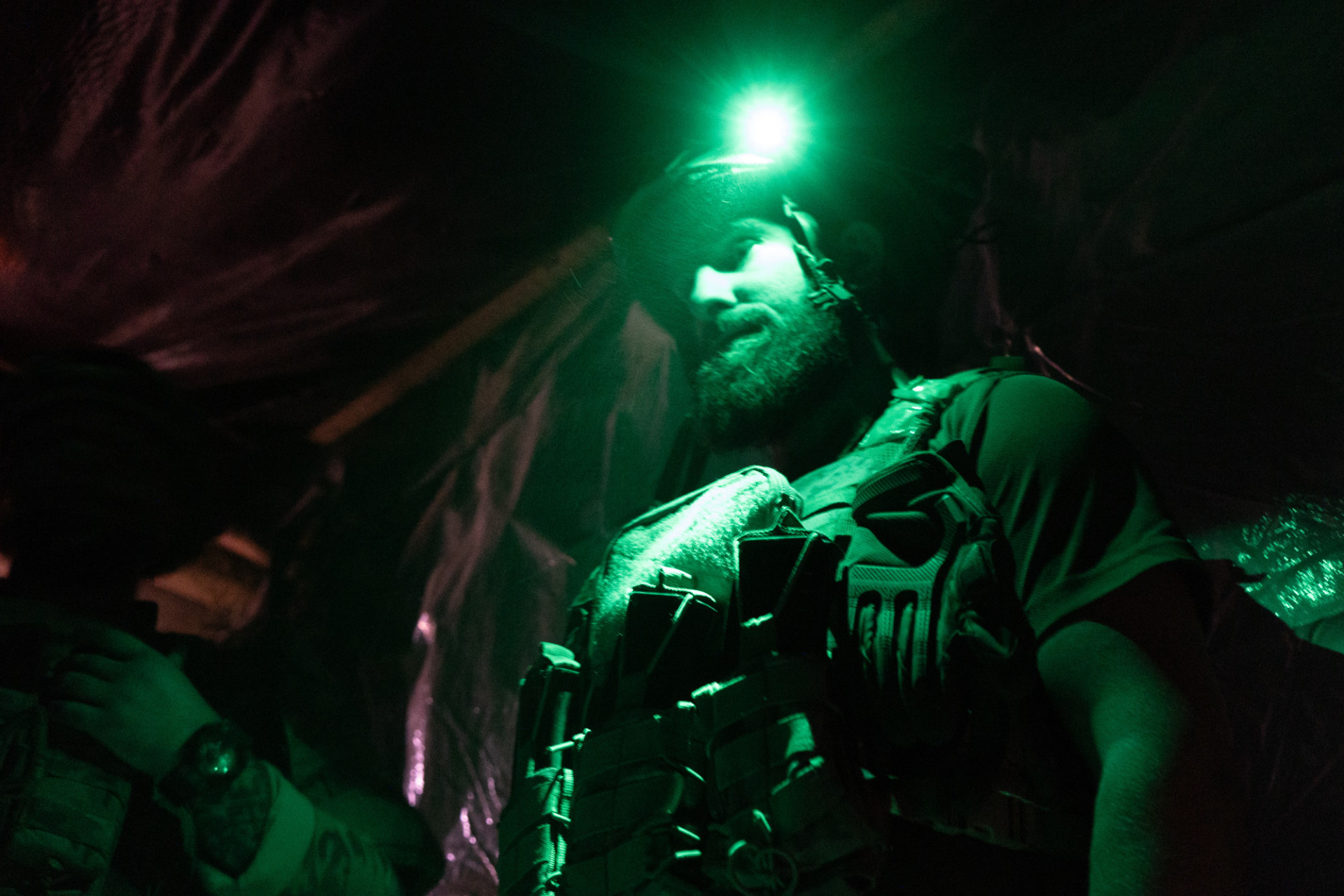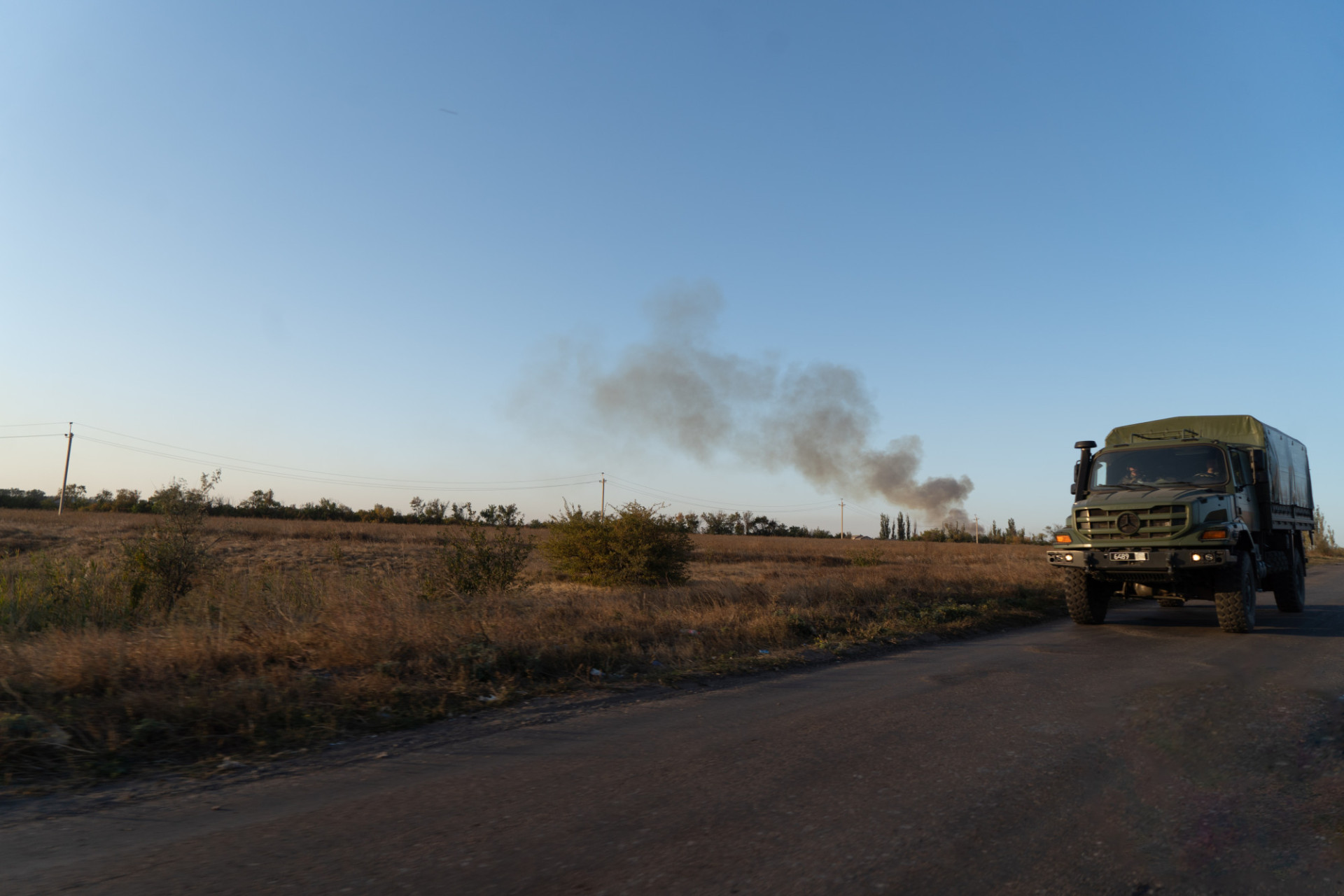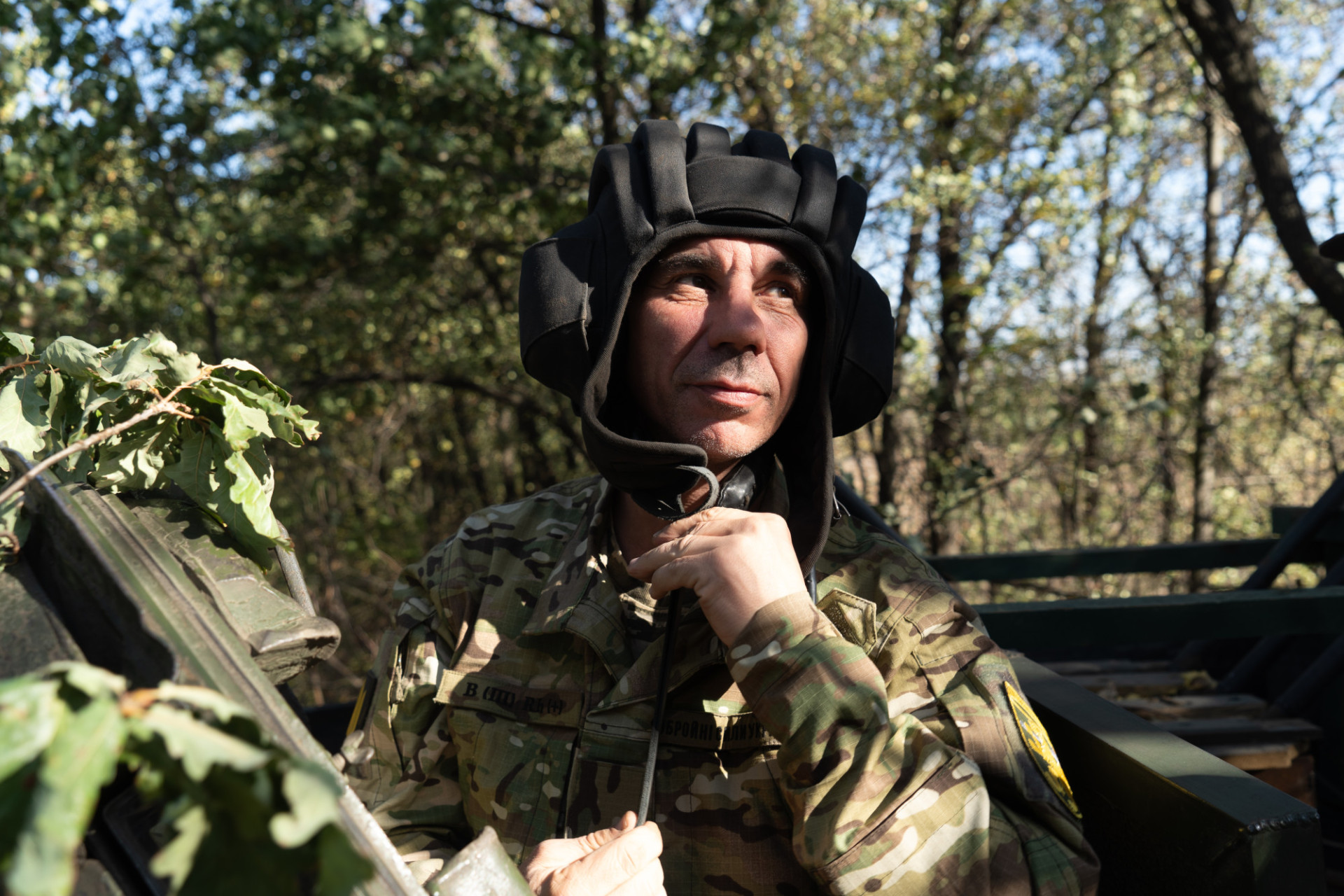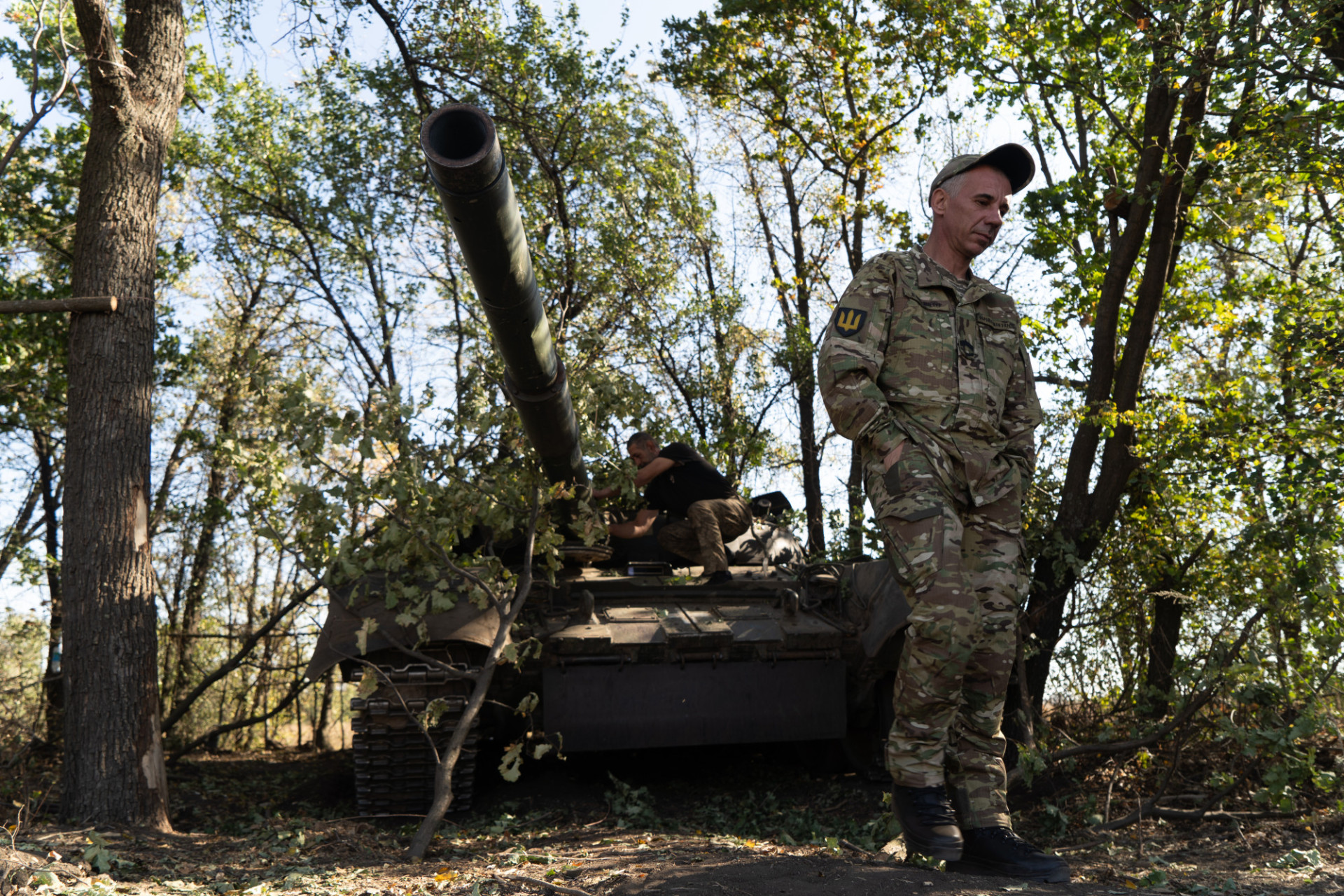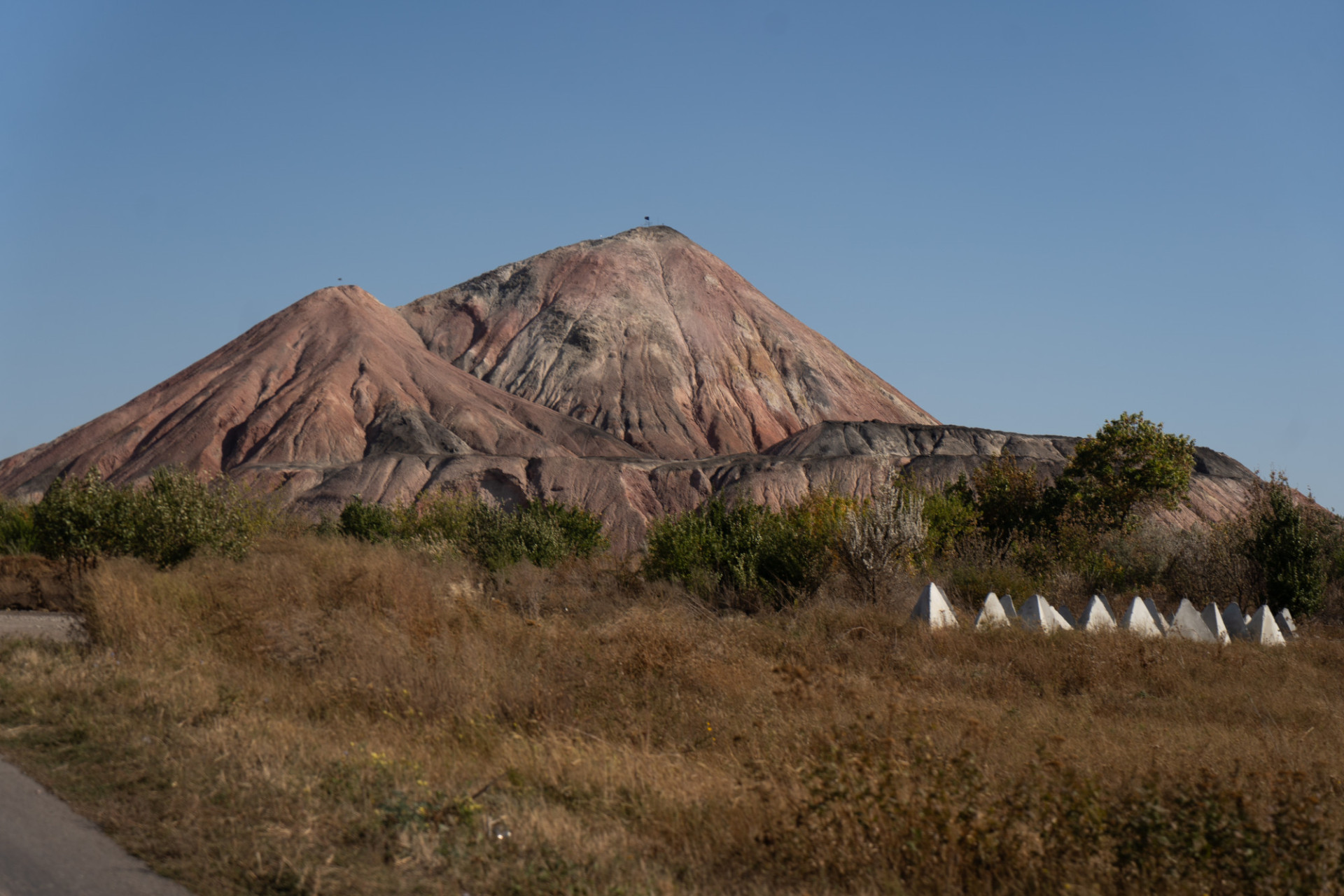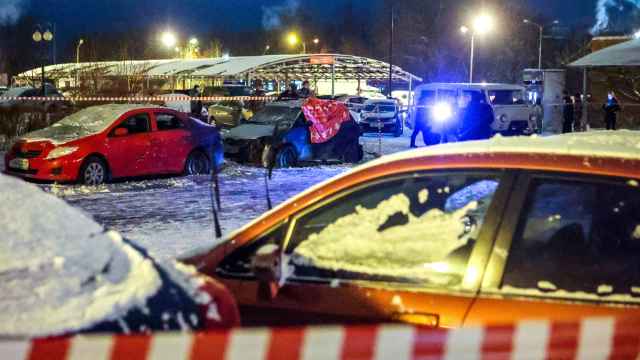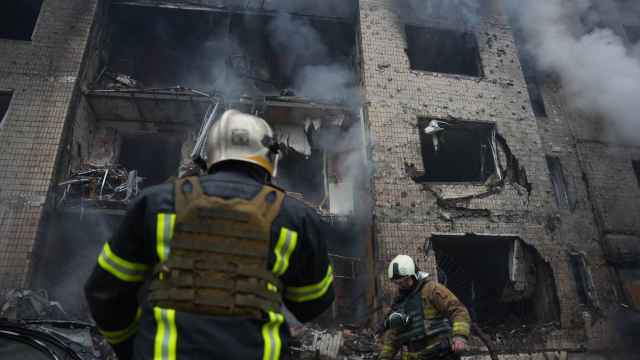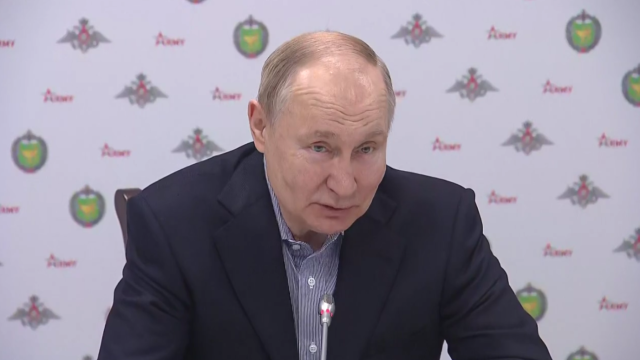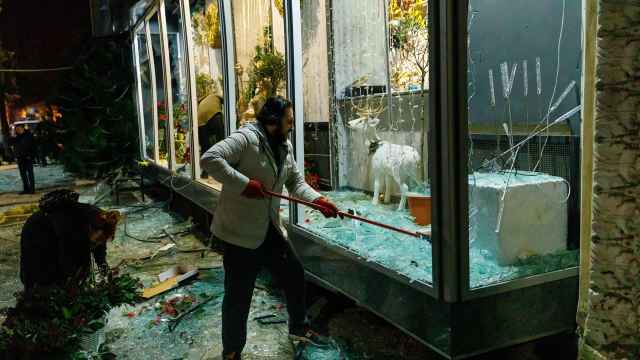Donetsk region, UKRAINE — In a dusty sky, the last storks of Donbas fly off to other horizons for the winter. Their supple wings, in the evening light, glide over fields of dried sunflowers and disappear behind massive slag heaps that, from one valley to another, seem to rise out of nowhere.
Philippe, 30, a soldier of Ukraine’s 68th Jaeger Brigade, presses down on the accelerator, his face focused.
After crossing the bridge in Pokrovsk, destroyed a few weeks earlier by Russian forces, he heads south toward Selydove. This is where the fiercest fighting has taken place.
In the opposite direction, dozens of cars and trucks evacuate the last civilians from the city.
Sitting next to Philippe in the front seat, Oleksandr, 31, points to a dark cloud.
"That’s Selydove!" he yells to be heard over the engine noise.
On both sides of the road, columns of smoke set the sky ablaze. A grating sound erupts behind us. A shell has just crashed into a field a few meters away. Right next to the impact, in front of a small house with a tin roof, an old woman, unfazed, watches as the military jeeps speed past.
Past the first village, our car plunges into the woods. Once in the red zone, Philippe swiftly exits the driver's seat and switches on a small black box with antennas at the back of the car. "It's to jam the drones," he explains.
Since the beginning of the summer, Russian forces, in a full-scale offensive in the Donbas, have achieved their greatest advance since the start of the war in February 2022, pushing their troops to within a few kilometers of Pokrovsk, one of the Ukrainian army’s logistical hubs in the region.
Facing an increasingly critical situation, the men of the 68th Brigade were brought back a few weeks ago to stem the Russian advance. For now, the Ukrainian forces seem to have stabilized the front, but no one knows for how long.
A stabilized front, but for how long?
Around an old Soviet cannon seized from the Russians during the Kharkiv counteroffensive in 2022, a dozen Ukrainian soldiers chat and laugh.
Their commander, Taras, 31, sports a long black beard. "We mostly do counter-battery fire," he says. "Depending on the day, we fire between 20 and 30 shells."
He says it’s difficult to predict how long the Ukrainian army will be able to halt the Russian advance.
"All I can tell you is that the situation has been stabilized for the past few weeks, and we still have a chance to save Pokrovsk," Taras says.
The calm conversation is interrupted by a phone call. Taras answers it curtly. Once he hangs up, he briskly moves toward the artillery piece. "Positions!" he yells.
In seconds, the soldiers of the 68th Brigade, in a perfectly synchronized dance, ready the artillery piece.
"Armata (armed)!" shouts one soldier. "Ostril (fire)!" responds Taras. As soon as the word is spoken, an explosion shakes the ground, and the cannon seems engulfed in flames.
After the shot, they all gather in the trench.
"We hide from the Russian counter-battery fire," explains Oleksandr. "We have to wait five minutes. If the Russians don’t respond within that time, it means they haven’t located us."
In the first minute, everyone is silent. "It takes 50 seconds for a shell fired from the Russian side to reach its target." In the second minute, Philippe lights a cigarette. Once the time has passed, one of the soldiers cracks a joke. Everyone bursts into laughter and, brushing off the dust that clings to them, climbs back to the surface.
"The Russians won’t respond this time," says Oleksandr with a wink.
Sufficient equipment
Like the 68th Brigade, the men of the 15th Brigade, positioned on the same part of the front, were also transferred a few weeks ago to block the Russian advance.
Mikhaïl, 47, commands a tank unit. Originally from Lviv in western Ukraine, he believes that Kyiv will be able to hold the front for a few more months.
"I think we have a chance to hold out for some time," he explains. "It all depends on the Russian advance and our ability to stop them. If we hold Selydove until the rainy season, we can hold Pokrovsk through the winter."
Known as the Rasputitsa, the rainy season, usually between mid-October and early November, dictates the pace of the war in Ukraine. Within days, a frontline can turn into a swamp, making the movement of essential vehicles nearly impossible for ongoing operations. One must then wait for the cracked mud to freeze at the start of winter to launch new offensives.
But Mikhaïl seems confident. He explains that their units are better prepared for winter this year and have much more ammunition than they did a few months ago.
After facing acute ammunition shortages for most of 2023, Ukrainian forces have in recent months secured enough supplies to defend themselves. This improvement is largely thanks to the initiative of Czech President Petr Pavel, who managed to mobilize nearly a million shells from allies worldwide.
"Given the level of intensity we face, we still need more shells, but [it’s] nothing like last year when we were in dire need."
Still, this improvement might be superficial. If Russian forces have slowed their advance on Pokrovsk, Mikhaïl explains it’s mainly to level the front and expand their salient around the city. "They were too deep and were jeopardizing their supply line," he says.
Oleksandr of the 68th Brigade is well aware.
"Every village results in street fighting and significant losses for the Russians. So they try to bypass and suffocate them. It’s more effective for them that way," he says.
Oleksandr wants to believe they can hold out. Despite the difficulties faced by the Ukrainian army, he thinks they will be able to keep Pokrovsk.
Yet despite the optimistic talk, the return journey betrays the Russian advance. Every five to 10 kilometers along the road from Pokrovsk to Kramatorsk, passing through Dobropillia, massive excavators dig new trenches, and dragon’s teeth, stacked on large dump trucks, wait to be deployed.
With a worried look, Philippe gazes at the horizon. He knows it: The Russians are advancing.
A Message from The Moscow Times:
Dear readers,
We are facing unprecedented challenges. Russia's Prosecutor General's Office has designated The Moscow Times as an "undesirable" organization, criminalizing our work and putting our staff at risk of prosecution. This follows our earlier unjust labeling as a "foreign agent."
These actions are direct attempts to silence independent journalism in Russia. The authorities claim our work "discredits the decisions of the Russian leadership." We see things differently: we strive to provide accurate, unbiased reporting on Russia.
We, the journalists of The Moscow Times, refuse to be silenced. But to continue our work, we need your help.
Your support, no matter how small, makes a world of difference. If you can, please support us monthly starting from just $2. It's quick to set up, and every contribution makes a significant impact.
By supporting The Moscow Times, you're defending open, independent journalism in the face of repression. Thank you for standing with us.
Remind me later.



